
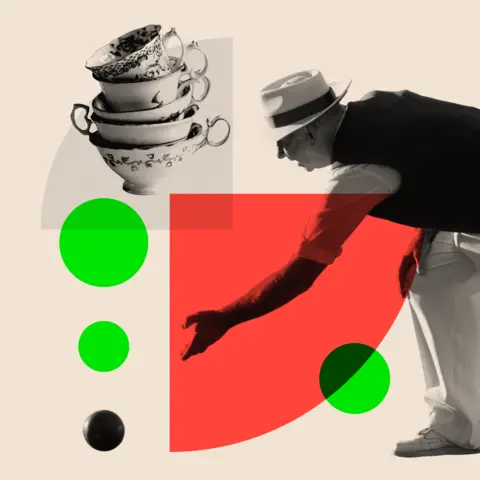 Getty Images
Getty ImagesIn the dappled light of midsummer, on the country lanes and byways of Middle England, there is an unmistakable, if understated, feeling of rebellion.
In seats that have mainly voted Conservative for the past century, the tide of blue appears to be on the way out, though there are few signs of affection for Labour.
In the searing mid-morning heat, pensioners are slowly and carefully bending onto one knee as they roll weighty black balls down the bowling green in the heart of the Bournemouth East parliamentary constituency.
Bournemouth (now divided into two parliamentary seats, East and West) has returned a Conservative or Unionist MP at every election since 1922.
And yet unease with the Conservatives is in the air. Bob Kelly, 75, a stalwart of the club, gently lays out his frustrations from the club’s wooden veranda.

“I have historically voted Conservative,” he tells me. “I don’t like Rishi Sunak. He is too wishy-washy. I am frightened of Labour. They lost control of spending last time. Nigel Farage’s party is too extreme.
“I will probably vote Conservative because I just do not think there is anyone else to vote for.”
An endorsement for the Conservatives, if hardly a ringing one. But the very fact that his backing for the party is wavering speaks volumes about the scale of the challenge the party is facing.
Nearly 200 miles to the north is Radcliffe-on-Trent, a quiet village whose tree-lined high street falls in the shadow of the tower of St Mary’s church.
The village lies in the heart of the mainly rural constituency of Rushcliffe, on the outskirts of Nottingham. It has returned a Conservative or Unionist MP at every election since 1918 apart from 1945 and 1966. Ken Clarke, the father figure of One Nation Tories, represented Rushcliffe from 1970 to 2019.
Now there appears to be an appetite for change. Robbie Davison, 47, is nursing a cup of coffee in the grounds of the Grange Hall with his daughter’s dog, Joey. Mr Davison has a clear view of his decision.
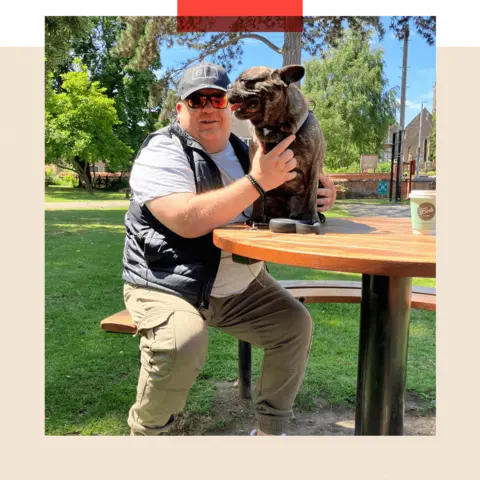
“I have been Conservative all my life, but I am ready for change,” he says. “I don’t really trust any of them but I will go for Labour this year. I think Labour will get the job done.”
Sentiments such as these are causing alarm among some Tories. One former minister in the south tells me they have given up the ghost even though they are defending a rock-solid Tory seat. To have cast a vote in that seat in an election where the winning candidate was not a Conservative, you would have to have been born in the reign of Queen Victoria. The former minister says the only question in their mind now is the scale of their defeat.
This mood is being picked up in the polls, though they should be treated with great care.
Professor Sir John Curtice, Britain’s guru of psephology, says the giant multi-level regression polls (MRP) suggest an alarming picture for the Tories – that their vote is falling more sharply in seats they hold.
These surveys, which rely on very large samples, often find a slightly lower national Labour lead over the Tories than the conventional polls, Prof Curtice says, but they currently suggest that the Tories could lose between 60 to 100 more seats than the usual extrapolation from conventional polls.
From the conversations I’ve had with politicians and voters throughout the campaign, three factors have combined to eat into the Conservative vote. The first is voter fatigue with the Tories after 14 years in office, which involved chopping and changing between five prime ministers. While there often appears to be no great love for Labour, neither is there any fear of the party, traditionally its greatest electoral weakness. Finally, there has been a noticeable overall uptick in support for Reform UK after Nigel Farage entered the fray, with signs that his party has eaten into the Tory vote more than Labour’s.
This has awakened hopes among the Liberal Democrats that they might stage a comeback or capture new seats in the area they call the “blue wall” – previously strong Conservative areas in the Home Counties where the Lib Dems believe they are the main challenger to the Tories.
Sir Ed Davey, the Lib Dem leader, once dismantled a mock blue wall after a Lib Dem by-election victory. The party chose this term as a play on the “red wall” – the once-strong Labour areas that voted Conservative in 2019.
Will the South East’s ‘blue wall’ crumble?
A voice from one of these Tory heartlands made its mark briefly on the national stage. In a sweltering hall at Nottingham Trent University last Wednesday, where the BBC hosted the second and final head-to-head debate between Rishi Sunak and Keir Starmer, Sue Barclay seized her moment.
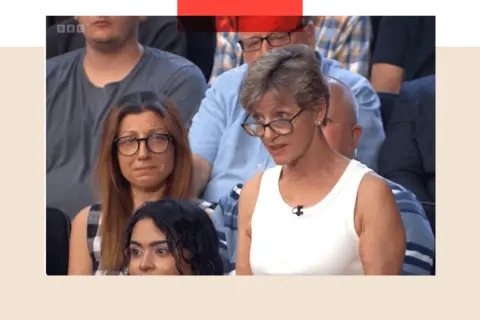
“How would you restore trust in politics?” the retired teacher from Rushcliffe asked the two leaders, referencing the betting saga and the dismay many people feel about the lack of integrity and honesty in politics.
Mr Sunak answered first, saying he shared her anger over political betting. He then repeated his line that anyone found guilty of breaking the law would be “booted out” of his party.
And then over to Sir Keir. Talking of the dangers of “self-entitlement”, he contrasted his immediate decision to disown a Labour candidate under investigation for an alleged bet with the reaction of the prime minister, who initially hesitated before taking action.
She listened respectfully as Mr Sunak spoke but was filmed smiling and nodding as Sir Keir responded.
But the debate made no difference to how Mrs Barclay will vote: the die was cast some time ago. After voting Conservative in Rushcliffe at every election since October 1974 Ms Barclay, 68 on polling day, had already decided to jump to Labour.
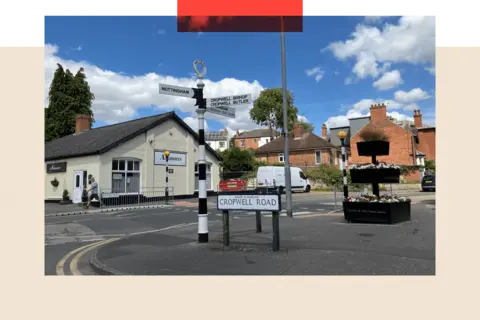
“A lot of people are fed up with the volatility and instability in the party over the last 14 years,” she tells me as she delivers a pointed critique of the five prime ministers from that period. “Finally Rishi is trying to pick up the pieces. He is earnest. But people are not listening anymore. People have tuned out.”
A rare sighting of Tory canvassers in her street persuaded Mrs Barclay that the party was nervous about what was a rock-solid Tory area.
Ruth Edwards, the Tory candidate defending Rushcliffe, turned up on her doorstep to ask whether she could count on Mrs Barclay’s support.
“I said for the first time I will vote for Labour. I get Keir Starmer can be a little bit robotic, but he actually has a soul and honesty about him.
“Ruth looked a bit deflated. But then my husband popped over and said: ‘It’s all right. I will vote Conservative.’ So that improved her mood a bit.”
Bournemouth East candidates – who can I vote for?
Bournemouth West candidates – who can I vote for?
Rushcliffe candidates – who can I vote for?
But along the tree-lined high street of Radcliffe on Trent, there is evidence that sir Keir Starmer himself is not a vote winner for everyone, including one traditional Labour voter. Sandra Trevillion, a pensioner, says she might switch to the Conservatives.
“I need to put my chin to it and make my mind up on how to vote,” she tells me. “I am not enthused by Keir Starmer. He is too cautious. I normally stand out in this area because it is Conservative. But I might vote Conservative, I might vote Liberal. I feel it is a duty to vote. But I am half-hearted about it. I need to look into it a bit more deeply.”
Back down to the south coast, and a ladies’ coffee morning is in full flow. All is calm until the BBC wanders into the wood-panelled cafe of the Boscombe Cliff Bowling Club and asks: “Any thoughts about the election?”
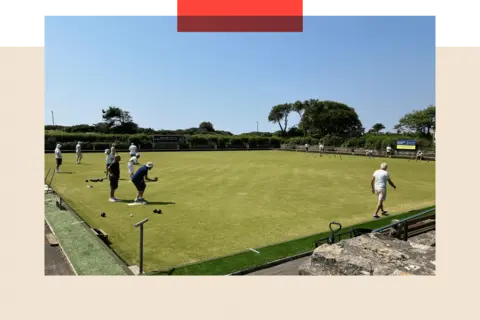
“I’m confused,” says Pamela Hellicar. “I agree with a bit from every party. “If they can deliver on those bits I will vote for them.”
And so a round-table discussion follows, with little affection for the Conservatives but only one clear voice for Labour. “We should have put VAT on private school fees ages ago,” the Labour supporter, who wished to remain anonymous, says of the party’s policy.
Others around the coffee table said they thought it unwise for Labour to punish hard-working parents who go without holidays to educate their children privately.
“Keir Starmer says he will do better,” says Linda Moorman. “They give all these promises but it is not clear where the money is coming from. They are not clear about taxes. They will probably plunge us into more debt.”
Outside the cafe, overlooking the bowling green, there is some better news for Rishi Sunak. Michael Hodge, 75, on a visit from the nearby Mid Dorset and North Poole constituency, will maintain a lifetime habit of voting Conservative, though even he has been impressed by one senior Labour figure.
“I like Rachel Reeves. She is very serious. But Keir Starmer changes his opinions and he won’t come off the fence,” Mr Hodge says.
Lack of enthusiasm among hitherto stalwart voters is only part of the story behind the challenge facing the Conservatives. Another significant factor is that places like Bournemouth are changing – and so too are their electorates.
Hop on a couple of buses across town into the Bournemouth West constituency and you find a very different atmosphere from that in the bowling club. There are wide avenues with grand Victorian and Edwardian villas, and the main street, Wimborne Road, unsurprisingly has a Waitrose. But it also has a younger vibe with artisan-style coffee shops that are popular with students attending one of the town’s two universities.
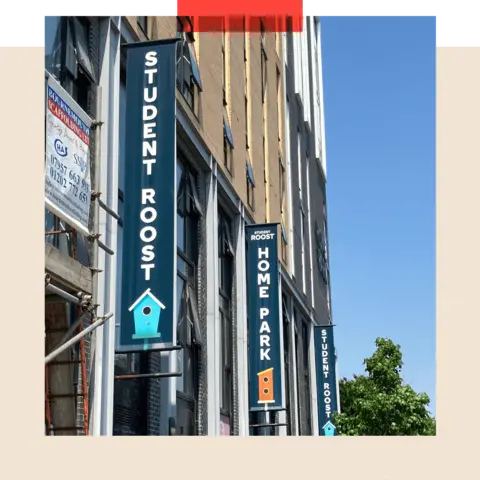
One old Bournemouth hand, speaking anonymously, says that the “studentification” of the town has changed the area. In the past 15 years, they estimate that the vast majority of semi-detached properties running off Wimborne Road in Winton have flipped from being residential to being multi-occupation for students.
Darren Lilleker, professor of political communication at Bournemouth University, says: “Young people have moved into this area – we have two universities and a large presence from the creative industries. This has changed the dynamics here. This is no longer a place for the elderly to retire. When I came here 22 years ago Bournemouth was God’s waiting room. It is now very different.”
Sheltering under the coffee shop’s canopy are Rowan Blackwell-Cronie, 22, and Connor Ariss, 21. Neither would countenance voting Tory.
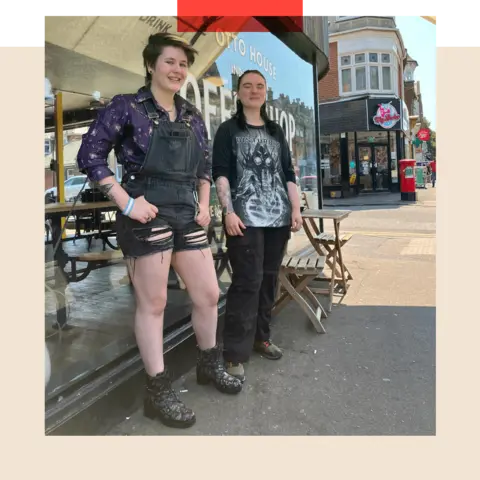
Rowan, a Green supporter, will cast a tactical vote for Labour back home in Gloucester, while Connor will vote Green in Bournemouth West.
“I want to vote Green because I like a party that will tax richer people more,” Rowan tells me. “But I will vote Labour. The Conservative Party has clearly rescinded the rights of LGBT people. There has been a lot of fear-mongering.”
Connor would have considered a tactical vote for Labour but feels there is now no need: “I would vote tactically if I thought there was a danger of a Conservative government. I don’t see that. I want more Greens in Parliament. I like the Greens’ equalities policies. They are not vague. Labour will backpedal and the Greens won’t. So I want Greens in Parliament to put pressure on a Labour government.”
Liv Potter, 21, who is walking with her friend, Liv Dixon, 20, into central Winton from their student accommodation, has not decided how to vote. She is not impressed by the Labour and Tory campaigns.
Ms Potter says: “They are just smearing each other. They should focus on their manifestos and what they believe in. Instead there is this constant flow on social media. They’re just following trends and it isn’t working.”
A word of warning from the student heartland of Bournemouth to the energetic teams running the two main parties’ social media accounts. Don’t assume younger voters want their politics trivialised.

And in that there is a wider message about this general election. We should be careful about assuming how different age groups and people in particular areas will vote. Liv Potter’s friend, Liv Dixon, says most of her friends are in the army reserve and are inclined to vote Conservative.
Every half-generation or so, a general election comes along in which voters yearn for change. This one appears to fall into the category, judging by the mood in normally reliable blue areas.
Opponents of the Conservatives will be hoping that an amended version of George Dangerfield’s landmark 1935 book, The Strange Death of Liberal England, will soon be rolling off the presses.
Loyal Tories will no doubt hope that such a tome will either be unnecessary or will have a short shelf life. The journalist Geoffrey Wheatcroft published The Strange Death of Tory England in 2005. Within five years the Conservatives were back in power, though initially part of a coalition.
Judging by his punchy performances in the debates Rishi Sunak is determined to fight right down to the wire to show that talk of his party’s demise is premature.
BBC InDepth is the new home on the website and app for the best analysis and expertise from our top journalists. Under a distinctive new brand, we’ll bring you fresh perspectives that challenge assumptions, and deep reporting on the biggest issues to help you make sense of a complex world. And we’ll be showcasing thought-provoking content from across BBC Sounds and iPlayer too. We’re starting small but thinking big, and we want to know what you think – you can send us your feedback by clicking on the button below.






